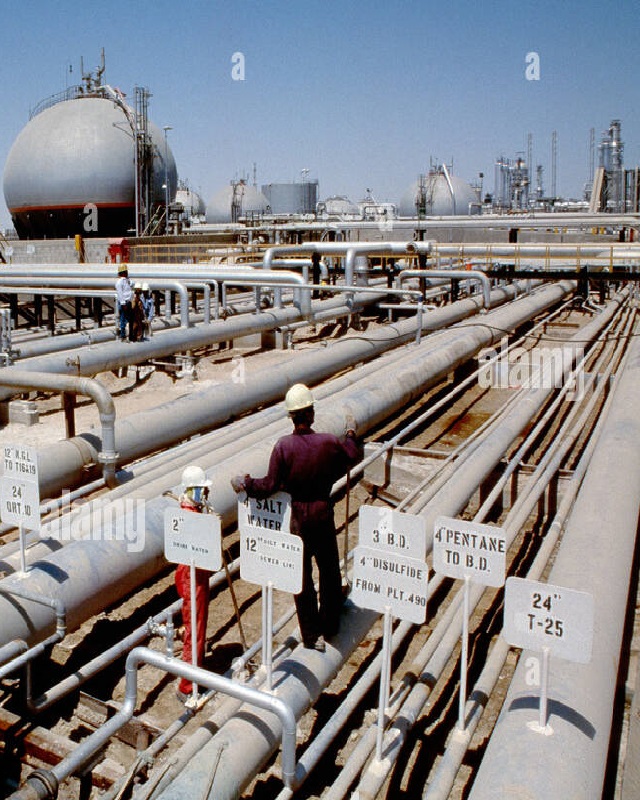
A notion shared by industry experts is that it is not economically viable to operate modular refineries in the country…

Mr. Momoh Oyarekhua made the observation during an exclusive interview on Channels TV Business Morning show on Monday where he shed light on issues bordering on the removal of fuel subsidy and how Nigeria can achieve optimal production and supply of required oil & gas products for the country, locally without depending on importation.
It is just like when you have not tasted someone’s mother food, you will always say your mother’s food is the sweetest. Those of us in the Crude Oil Refinery Association of Nigeria, CORAN, are current operators in this space, and we have seen the benefit that the modular refinery operation can bring to the economy such as closing out subsidy.
The purpose of exploring crude anywhere in the world is to refine it. What we are currently doing in Nigeria is exploration of crude oil and exportation to other countries for refining before it is brought back for resell. In this space, what modular refineries do is that they are located at one end which is where the fixed stock can be seen, thereby eliminating the cost of transportation of the crude abroad, the cost of bringing them back and the cost of middlemen who make money from selling these products.
Nigeria could benefit from modular refineries by eliminating those costs and making the products affordable. Challenges of subsidy and increment in price of Premium Motor Spirit, PMS, which is petrol, can be eliminated by enabling modular refinery. It will eliminate all middle costs, provide huge employment opportunities and eliminate petroleum product theft as well as challenges of pipeline breakage.
We are co-located with an oil-producing company, and what they do is to have a 400m pipeline into our refinery. We produce for the Nigerian people at a cut price, although the issue is that we have not had enough crude oil supply to refine for a country like Nigeria. If it was that easy, a lot of people would go into the business.
A lot of people feel that it is not economically wise to engage in the business due to insecurity, cost of running it and production quantity. How true?
Any refinery that handles supply above 30’000bpd is meant to be a conventional refinery, and any below that, is a modular refinery. If you have 40 registered modular refineries around Nigeria with an average refining capacity of 10,000bpd, it means you have about 400,000bpd refining capacity. And this capacity will be located around where crude oil is being produced.
Meaning we are going to have a ripple effect of this refined product. Currently, like our refinery and most modular refineries that are currently in operation in Nigeria, they produce diesel, naphtha, fuel oil and kerosene. The naphtha can be treated as PMS, which is gasoline. The cost of having an additional reformer to produce petrol is very high and that is why some of the modular refineries today don’t have reformers attached to their refineries. Before now, it was not economically viable for anyone to want to go into that venture. With the deregulation of petrol, there might be people interested in attaching reformers for the production of PMS.
In essence, the effect of having 40 modular refineries established in the country will be saturated with petroleum products, such that issues of products’ scarcity caused by delay in delivery will be eliminated. This is achievable because production will be within the country. Also, there will be no need for importing all that will be needed for the production of those petroleum products including associated gas.
The effect of that is that we shall also save the foreign exchange that is currently being used to import petroleum products into the country due to the fact that it is mounting excessive pressure on our foreign exchange. This is part of the problems that modular refineries would solve in the country. If you check out some of those countries outside Nigeria, they do have small unit refineries as opposed to gigantic refineries, this kind of system helps to boost healthy competition. Also, whenever the bigger refineries experience a breakdown, production goes on. This is another benefit of having modular refineries operational in Nigeria.
About 30 companies have been given the license to start modular refineries, and you have also talked about funding. How do you intend to secure funds with the current economic challenges facing the country?
Part of what we have said is not for the country to provide us with funds. Sometimes, there could be guarantees given to companies that would enable them to attract funds to this industry. In our case, we did not fund our refinery 100 per cent. We had foreign partners who were ready to bring equipment into the venture and this equipment was like an equity in what we have. That is what most of the modular refinery owners are saying. They are saying if there could be some form of guarantee. For example, there are some of our members who have done their field and are just seeking funds, but there is no assurance that crude will be supplied thereafter. What we are saying is that, they should be assured that crude will be supplied after they build the refinery. A case study is our company that has installed a 10,000b refining capacity in the last one year. We have not been able to refine up to 10,000b because of lack of supply, but for the intervention of pillar oil that has been supporting us with about 1,500b, the refinery would have just been there without operations.
These licenses were given to you by government…
Before now, the law that established modular refineries as stipulated in the DPR laws, states that the government would supply 60 per cent of the crude required to run a modular refinery in the country. However, after establishing your company, you still need to push for it to ensure that the supply comes. In the PIA, there is a domestic obligation for crude supply, but all of these have not been activated because we keep engaging the bodies in charge but nothing has been done, which poses a big challenge for us. For example, the Edo refinery currently has a 1000b refinery installed, and just to have a thousand barrels of crude oil supplied to them is a big deal. Until recently, they engaged a private crude producer to kick off refining.
How do you intend to compete with Dangote, who should begin supply next month?
The market is different. As I said, we have a niche. Like some refineries located in Delta and Owerri, we take care of our catchment area since there are about five states very close to us, and all products that they require will come out of our refinery because that is their catchment area.
- By:Coran
- 0 comment

Leave a Reply